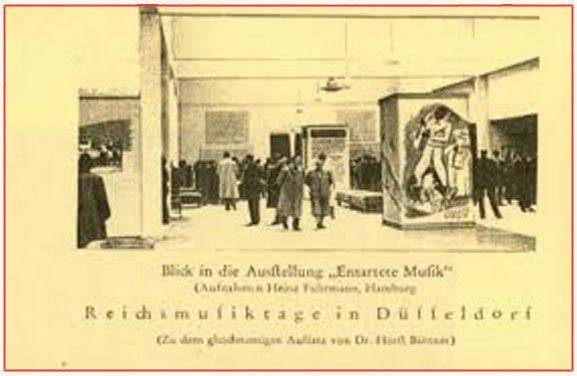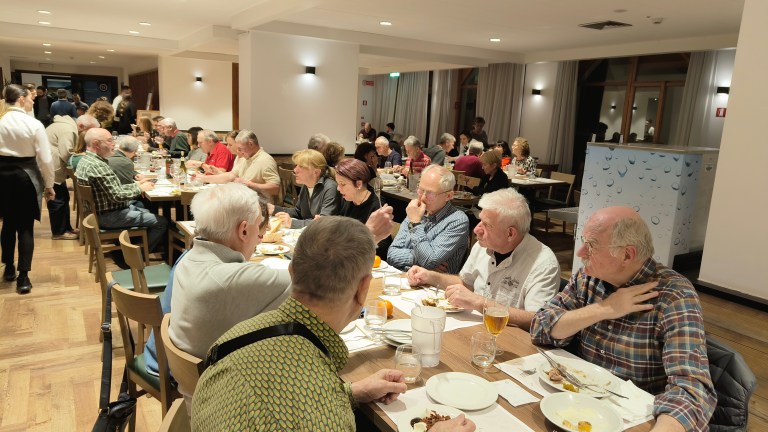Napisala i przyslala Basia Jaworski
This article is about 'Entartete Musik’, 'Teresienstadt-composers’ and the recordings by and at Channel Classics Records.
 At the end of the 1980s the music-loving world (and here I mean not only listeners, but also publicists, reviewers and music experts) found out that there was more between heaven and earth, or, since we are talking about music: between Strauss and Stockhausen. People began to realise that an entire generation of composers had been deleted from the history books and concert halls. Just like that. And it was not _only_ the fault of the Nazis.
At the end of the 1980s the music-loving world (and here I mean not only listeners, but also publicists, reviewers and music experts) found out that there was more between heaven and earth, or, since we are talking about music: between Strauss and Stockhausen. People began to realise that an entire generation of composers had been deleted from the history books and concert halls. Just like that. And it was not _only_ the fault of the Nazis. In 1988, the exhibition ‘Entartete Musik’ was put on in Düsseldorf, exactly 50 years after the original event held by the Nazis. The exhibition also traveled to other cities, including Amsterdam, and became the occasion of much discussion.
In 1988, the exhibition ‘Entartete Musik’ was put on in Düsseldorf, exactly 50 years after the original event held by the Nazis. The exhibition also traveled to other cities, including Amsterdam, and became the occasion of much discussion.
The term ‘entartet’ (degenerate) was not invented by the Nazis. Already in the nineteenth century it was used in criminology, meaning something like ‘biologically degenerated’. The term was eagerly borrowed by the rulers of the Third Reich to prohibit the expressions of art that they considered ‘non-Aryan’. Modernism, expressionism, jazz … And everything that had to do with Jews, because they were already seen as a degenerate race.

What had begun as a ban soon developed into exclusion and resulted in murder. Those who had managed to flee to America or England have survived the war. Those who stayed in Europe were doomed.
Many, mainly Czech composers were deported via Terezín to the extermination camps, many ended up there directly. After the war they were totally forgotten, and thus murdered for the second time. Those who survived were found hopelessly old-fashioned and no longer played.
It was only at the end of the 1980s that it became clear that Korngold was more than a composer of Hollywod scores; that without Schreker and Zemlinski there would probably have been no Strauss either and that Boulez and Stockhausen were not the first to experiment with serialism. The turnaround came too late for most of the survivors …
In Germany the foundation Musica Reanimata was established, but the Netherlands did not stay behind either. Under the name Musica Ritrovata a few enthusiasts have tried to bring the music back to the concert halls.
That this succeeded was partly thanks to Channel Classics. The Dutch CD label, founded by Jared Sachs was the very first to record the music of forgotten composers.
Already in 1991 and 1992 they released four CD’s with music of the ‘Theresienstadt – Composer’ of whom one had almost never heard before: Gideon Klein, Hans Krása, Pavel Haas, Viktor Ullman… Even though the last three were really household names before the war. Gideon Klein had not had the chance – he was murdered in the gas chambers at the age of 24.
HANS KRÁSA

The first four Channel Classics CDs were truly pioneering. Hans Krása’s child opera Brundibarwas recorded in Prague. Brundibar was actually composed before the war, but its premiere took place in Terezín, in 1943.
The CD (CCS 5198) was combined with songs by Domažlicky. Not a high-flyer, but certainly interesting.
Calosc TUTAJ
Kategorie: Muzyka, wspomnienia
